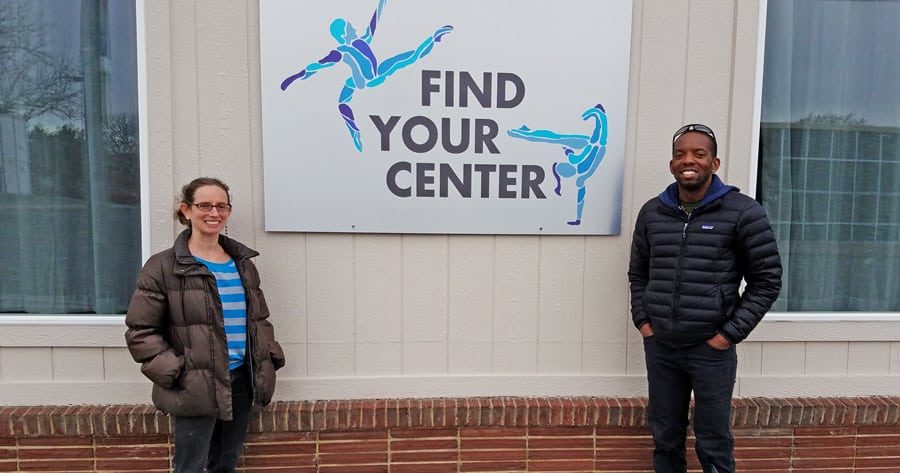
Home » New loan program aims to help businesses owned by women, minorities
New loan program aims to help businesses owned by women, minorities

August 14, 2018
Have an idea for a new business start-up or dreaming of expansion, but having trouble securing the funding to move forward? The Benton-Franklin Council of Governments may be able to help.
Last year, the intergovernmental organization launched a new loan program intended to help women- and minority-owned businesses with micro-loans up to $25,000.
“More than half of our loans are to women or minorities,” said Fatima Traore, an economic development finance professional and economic development coordinator at BFCOG.
Stephanie Seamans, a certified public accountant and BFCOG’s community and economic development manager, said they receive a lot of requests for gap lending.
“A lot of small businesses don’t even think they qualify (for loans),” she said, explaining that when a business is in its infancy, banks are sometimes leery of lending until a couple of years of profitability are established, which can make it difficult for entrepreneurs to get a start.
Seamans referred to BFCOG’s loan program as an alternative to normal financing.
“We help out … until they get bankable,” she said. “It’s an option out there instead of borrowing from family or taking out personal loans.”
Kate Feinberg Robins, owner of Find Your Center in Pasco, said it hadn’t occurred to her that the business could get a loan to help with upgrading costs.
She and her husband, DeShawn Robins, applied for a micro-loan after meeting Seamans at the Pasco Development Authority’s quarterly downtown merchants meeting.
Robins said they hadn’t really considered loans due to the amount of paperwork and time commitment involved when they were busy getting their new dance and martial arts school up and running.
“It was nice to work with someone who’s on our side, who wanted us to (be approved) … who wanted to make (the process) as simple as possible,” she said.
“It helps us build credit as a business,” Robins added. “If we can get a small loan, it will make it easier later on when we need a bigger one.”
The loans are made possible via funding received in 2017 from the Northwest Business Development Association, which provided $50,000 to lend to eligible women and minority entrepreneurs.
So far, two local businesses—including Find Your Center—have taken advantage of the program.
“Sometimes people need more than this loan program can give, so they then fall into our other (loan programs),” Seamans said.
BFCOG also offers larger lending options up to $300,000 through its Regional Revolving Loan Fund and Columbia Regional Economic Development Trust programs, which are open to a wider range of business applicants throughout the Columbia Basin.
The primary purpose of all three programs, according to BFCOG officials, “is to assist businesses in our community to expand and prosper, creating new jobs and diversifying the economy.”
“We don’t necessarily look at things as strictly as a bank might. We’re a little more understanding than a bank would be with challenges you may have had with past credit history,” Seamans said.
“As long as you’re working on paying your bills — even if it’s a big debt,” added Traore.
She explained that some loan applicants have past credit issues related to unavoidable life circumstances that don’t necessarily reflect their present-day ability to commit to a loan.
“It’s not only our job … but we really want to help,” Traore said.
BFCOG’s micro-loan program offers long-term financing, fixed payments and a competitive interest rate of 6.5 percent.
“We also provide a report on credit … so, it helps people establish credit as a business which is helpful for when they go to get a second loan with a bank,” Traore said.
Despite many banks’ reluctance to lend to new business borrowers with no history, Traore said local banks often reach out to BFCOG with potential clients and vice versa. “There is no competition,” she said. “We are partners.”
Traore went on to explain that cooperation with the local banks “reduces the risk for both parties involved.”
Seamans added, “Especially on larger loan programs, we like to have collateral that matches up with what’s being loaned out. Maybe we do 30 percent and (the bank) does 60 percent and the borrower comes in with 10 percent.”
“The bank usually wants the borrower to come in with 20 percent,” continued Seamans. “But sometimes they will take less if we come in with (a loan) amount that supports it.”
BFCOG also has the support of loan officers and others in the local banking community who contract with the organization to assist with loan write-ups.
“It’s good to have an independent banker’s perspective,” Seamans said. “We’ve been turning loans around very quickly.”
Rick Peenstra, one of the founders of Community First Bank in Kennewick, recently retired from his role at the institution and now works for BFCOG as a contract loan officer, conducting applicant interviews, reviewing and analyzing applications, and making recommendations to BFCOG’s loan committee and board.
“I’ve been really customer service-oriented all my life,” Peenstra said. “Competition can be pretty severe, so you have to do a good job to get your share of the business. It’s been nice to help streamline the program.”
Economic community development is the primary objective of BFCOG, said Seamans, who said the 52-year-old organization works closely with Tri-City Development Council, the cities, ports and counties “to make sure they understand opportunities for funding and just generally other economic development strategies and opportunities.”
“We like job creation,” Traore said. “And we require it.”
She said to be eligible for one of BFCOG’s loans, applicants must commit to a plan to create jobs.
“Economic development is tied to job creation,” Traore said.
Traore said the application process is straightforward. There is a $30 nonrefundable application fee for the micro-lending program for minorities and women, and $100 for BFCOG’s larger loan programs.
“We do an intake and then from that meeting we determine if they can even apply,” Traore said. If deemed a good fit, a checklist is next provided that helps applicants gather the necessary financial information for review by BFCOG’s loan committee.
“If approved by the loan committee, the application then goes to the big board of BFCOG,” Traore said. “And if everything is approved, then we start the loan documents and we have a legal group that goes over the loan documents to make sure everything is fine.”
In addition to working to get the word out about BFCOG’s loan programs, in looking to the future, Seamans said, “I think we’d like to see other loan programs and funds that go into projects like this to serve the region.”
Seamans explained that essentially, BFCOG’s loan programs are a “revolving fund” for the community because “as the money is lent out, it comes back to the fund,” she said.
As businesses get up and running and start seeing a return on investment by the patronage of their customers, this cycle helps money invested in local businesses to stay in the community and fuel future projects.
BFCOG is always interested in partnering with local agencies and organizations to invest into the revolving loan funds.
“Sometimes organizations like PUDs and other public entities have economic development funds … which might be told by their boards to invest into economic development. This is a convenient way to show that they are doing that. We’re just the beneficiaries,” Seamans said.
Benton-Franklin Council of Governments: http://bfcog.us; 509-943-9185.
Local News Diversity
KEYWORDS august 2018




